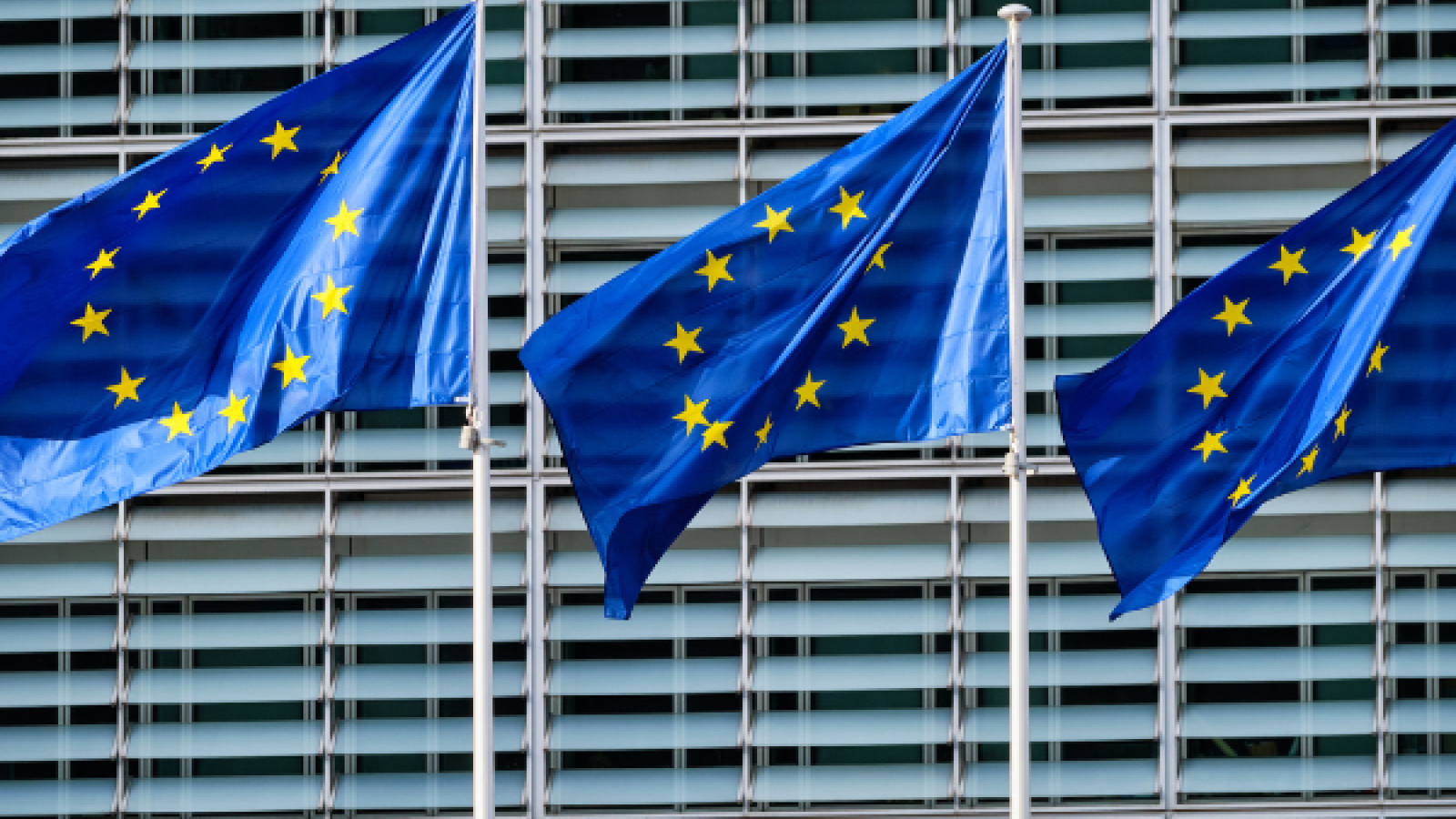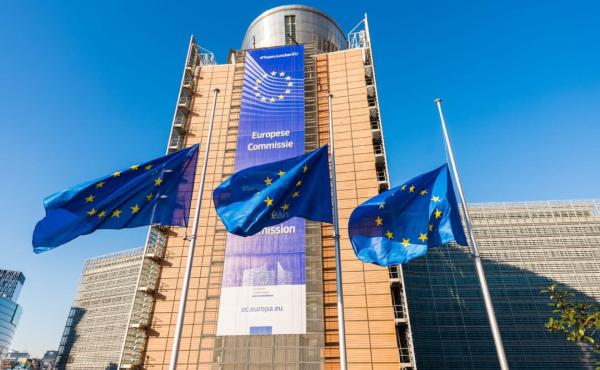
The ECGI blog is kindly supported by

On the necessary adoption of the CSDDD by the EU Council
An appeal to the German Federal Chancellor and the Ministers of Finance, Justice and Labour, signed by over 70 academic researchers.
We research, teach, and consult on issues relating to the sustainable transformation of the economy in various disciplines. We are very concerned about the current plans against the adoption of the EU supply chain regulation (Corporate Sustainability Due Diligence Directive - CSDDD) agreed in the trilogue by the EU Council, initiated by the German Ministries of Finance and Justice (Christian Lindner and Dr. Marco Buschmann). They not only call into question the success of the CSDDD, but also the sustainability transformation of the EU economy following the EU Green Deal project. We believe that the CSDDD is not just a burden, but also provides legal certainty for companies with international supply chains.
In addition to strengthening human rights and decent working conditions (e.g. prevention of child and forced labor), the aim of the EU Green Deal is to achieve a climate-neutral economy by 2050. This requires, among other things, the implementation of a corporate climate strategy in line with the Paris Agreement and corresponding incentive systems at company management level. The statement that the requirements of the CSDDD are not compatible with the function of the supervisory bodies and represent a serious interference in corporate governance is therefore open to criticism. In any case, sustainability aspects must be reported in future in accordance with the Corporate Sustainability Reporting Directive (CSRD). This also includes the value chain. The informative value of future sustainability reporting and the overarching objectives of climate neutrality and strengthening human rights in the EU would be at risk without the CSDDD.
The argumentation of Ministers Lindner and Buschmann also calls into question the German Supply Chain Act (LkSG), which already came into force on 1 January 2023, as a lack of EU harmonization through the CSDDD is likely to significantly worsen the competitive situation of the German economy in international trade. We strongly oppose the statement that the CSDDD "also threatens to worsen the situation in terms of human rights and ecology" through reshoring.
Compared to other national supply chain acts within the EU, e.g., in Germany, the CSDDD will only result in selective additional administrative work for domestic companies (e.g. risk-based approach, no significant additional reporting obligations). The CSDDD would create the necessary level playing field in Europe for the benefit of the German and European economy. This important contribution of the European regulation must now be defended through political unity. We therefore call on the German Federal Government and the members of the Committee of Permanent Representatives (COREPER) to actively advocate the adoption of the CSDDD.
German version: Zur notwendigen Annahme der CSDDD durch den EU-Rat
In unterschiedlichen Disziplinen forschen, lehren und beraten wir zu Fragen der nachhaltigen Transformation der Wirtschaft. Die aktuellen Pläne gegen eine Annahme der im Trilog abgestimmten EU-Lieferkettenregulierung (Corporate Sustainability Due Diligence Directive – CSDDD) durch den EU-Rat, initiiert von den Ministerien für Finanzen und Justiz (Christian Lindner und Dr. Marco Buschmann),[1] nehmen wir mit großer Sorge wahr. Sie stellen nicht nur das Gelingen der CSDDD, sondern auch die Nachhaltigkeitstransformation der Wirtschaft in der EU nach dem EU-Green-Deal-Projekt in Frage. Wir finden: die CSDDD bedeutet nicht nur Aufwand, sondern sorgt für Rechtssicherheit für Unternehmen mit internationalen Lieferketten.
Ziel des EU-Green-Deals ist neben der Stärkung der Menschenrechte und menschenwürdiger Arbeitsbedingungen (z.B. Verhinderung von Kinder- und Zwangsarbeit) die Erreichung einer klimaneutralen Wirtschaft bis 2050. Dies setzt u.a. die Implementierung einer unternehmerischen Klimastrategie im Einklang mit dem Pariser Klimaschutzabkommen und entsprechenden Anreizsystemen auf Ebene der Unternehmensleitung voraus. Die Aussage, dass die Vorgaben der CSDDD „mit der Funktion der Aufsichtsorgane nicht vereinbar [sind] und einen schweren Eingriff in die Corporate Governance dar[stellen]“, ist daher kritikwürdig. Ohnehin ist über Nachhaltigkeitsaspekte künftig nach der Corporate Sustainability Reporting Directive (CSRD) zu berichten. Diese bezieht auch die Wertschöpfungskette mit ein. Die Aussagekraft der künftigen Nachhaltigkeitsberichterstattung sowie die übergeordneten Zielsetzungen der Klimaneutralität und Stärkung der Menschenrechte in der EU wäre ohne die CSDDD in Gefahr.
Die Argumentation der Minister Lindner und Buschmann stellt auch das bereits am 1.1.2023 in Kraft getretene deutsche Lieferkettengesetz (LkSG) in Frage, da eine fehlende EU-Harmonisierung durch die CSDDD die wettbewerbliche Situation der deutschen Wirtschaft im internationalen Verkehr deutlich verschlechtern dürfte. Der Aussage, durch die CSDDD „drohe auch menschenrechtlich und ökologisch eine Verschlechterung der Situation“ durch Reshoring, treten wir entschieden entgegen.
Die CSDDD wird für inländische Unternehmen gegenüber anderen EU-Lieferkettengesetzen, z.B. dem deutschen LkSG, nur punktuell einen administrativen Mehraufwand verursachen (u.a. risikobasierter Ansatz, keine wesentlichen zusätzlichen Reporting-Pflichten). Die CSDDD würde zugunsten der deutschen Wirtschaft die notwendige Wettbewerbsgleichheit in Europa herstellen. Diesen wichtigen Beitrag der europäischen Regelung gilt es jetzt durch politische Geschlossenheit zu verteidigen. Wir fordern die deutsche Bundesregierung und die Mitglieder des Ausschusses der ständigen Vertreter der Mitgliedstaaten (COREPER) daher auf, sich aktiv für eine Annahme der CSDDD einzusetzen.
In alphabetic order/In alphabetischer Reihenfolge:
Prof. Dr. Heribert M. Anzinger, Universität Ulm
Dr. Julia Bartosch, Radboud Universität Nijmegen
Prof. Dr. Anna Beckers, Universität Maastricht
Prof. Dr. Lucia Bellora-Bienengräber, Universität Groningen
Dr. Nadia Bernaz, Wageningen University
Dr. Matthias Birkholz, lindenpartners
Prof. Dr. Judith Brockmann, Universität Kassel
Prof. Dr. Lisa Carstensen, Universität Kassel
Christophe Clerc, Descartes Legal Paris
Prof. Dr. Martina Deckert, Universität Kassel
Prof. Dr. Laura Marie Edinger-Schons, Universität Hamburg
Dr. Klaas Hendrik Eller, Universität Amsterdam
Prof. Dr. Olivier Favereau, Université Paris Nanterre
Prof. Dr. Andreas Fischer-Lescano, Universität Kassel
Prof. Dr. Martin Franz, Universität Osnabrück
Tonio Friedmann, Johannes Gutenberg-Universität Mainz
Dr. Nicola Gundt, Universität Maastricht
Prof. Dr. Malte-C. Gruber, Justus-Liebig-Universität Gießen
Prof. Dr. Dr. Stefan Grundmann, Humboldt-Universität zu Berlin
PD Dr. Markus Helfen, Hertie School Berlin’s University of Governance
Prof. Dr. Isabell Hensel, Universität Kassel
Prof. Dr. Markus Kaltenborn, Ruhr-Universität Bochum
Prof. Dr. Eva-Maria Kieninger, Julius-Maximilians-Universität Würzburg
Dr. Judith Kopp, Universität Kassel
Prof. Dr. Markus Krajewski, Friedrich-Alexander-Universität Erlangen-Nürnberg
Prof. Dr. Malte Kramme, TU Bergakademie Freiberg
Dr. Nora Lohmeyer, Radboud Universität Nijmegen
Prof. Dr. Bertram Lomfeld, FU Berlin
Prof. Dr. Antoine Lyon-Caen, Université Paris Ouest Nanterre La Défense
Prof. Dr. Timo Meynhardt, HHL Leipzig Graduate School of Management
Prof. Dr. Caroline Meller-Hannich, Martin-Luther-Universität Halle-Wittenberg
Prof. Dr. Hans-W. Micklitz, Europäisches Hochschulinstitut
Prof. Dr. Anne-Christin Mittwoch, Martin-Luther-Universität Halle-Wittenberg
Prof. Dr. Guido Möllering, Universität Witten/Herdecke
Prof. Dr. Florian Möslein, Philipps-Universität Marburg
Prof. Dr. Martin Müller, Universität Ulm
Sean Needham, Helmut-Schmidt-Universität. Universität der Bundeswehr Hamburg
Prof. Dr. Jens Newig, Leuphana Universität Lüneburg
Prof. Dr. Dr. Maximilian Pichl, Hochschule RheinMain
Prof. Dr. Irina Parachkévova-Racine, Université Côte D’Azur
Prof. Dr. Gaetano Piepoli, Università degli Studio di Bari Aldo Moro
Prof. Dr. René Repasi, Erasmus Universität Rotterdam
Prof. Dr. Jean Philippe Robé, Sciences Po Paris
PD Dr. Martin Rohleder, Universität Augsburg
Prof. Dr. Giesela Rühl, Humboldt-Universität zu Berlin
Prof. Dr. Andreas Rühmkorf, Westfälische Hochschule
Dr. Miriam Saage-Maaß, ECCHR
Dr. Tatiana Sachs, Université Paris Nanterre
Prof. Dr. Anne Sanders, Universität Bielefeld
Dr. Christian Scheper, Universität Duisburg-Essen
Prof. Dr. Dr. h.c. Stefan Schaltegger, Leuphana Universität Lüneburg
Prof. Dr. Frank Schiemann, Otto-Friedrich-Universität Bamberg
Dr. Christian Schliemann-Radbruch, ECCHR
Prof. Dr. Thomas Schomerus, Leuphana Universität Lüneburg
Prof. Elke Schüßler, Leuphana Universität Lüneburg
Prof. Dr. Julia Schwarzkopf, Hochschule für Technik und Wirtschaft (HTW) Berlin
Prof. Dr. Stefan Seuring, Universität Kassel
Prof. Dr. Lucia Sommerer, Martin-Luther-Universität Halle-Wittenberg
Prof. Dr. Tobias Steindl, Universität Regensburg
Prof. Dr. Jörg Sydow, FU Berlin
Prof. Dr. Hannah Trittin-Ulbrich, Leuphana Universität Lüneburg
Prof. Dr. Patrick Ulrich, Hochschule Aalen
Prof. Dr. Laura Valle, Freie Universität Bozen-Bolzano
Prof. Dr. Patrick Velte, Leuphana Universität Lüneburg
Prof. Dr. Stephane Vernac, Université de Picardie Jules Verne
Dr. Dr. Carolina Vestena, Universität Kassel
Dr. Anne-Marie Weber, Universität Warschau
Prof. Dr. Stefan C. Weber, StB, Fachhochschule Wedel
Prof. Dr. Marc-Philippe Weller, Universität Heidelberg
Prof. Dr. Christopher Wickert, Vrije Universiteit Amsterdam
Prof. Dr. Inge Wulf, Technische Universität Clausthal
Dr. Anil Yilmaz-Vastardis, University of Essex
[1] https://correctiv.org/wp-content/uploads/2024/02/Christian-Lindner-und-Marco-Buschmann-zum-EU-Lieferkettengesetz.pdf.
The ECGI does not, consistent with its constitutional purpose, have a view or opinion. If you wish to respond to this article, you can submit a blog article or 'letter to the editor' by clicking here.
If you would like to read further articles on Corporate Sustainability Due Diligence, click here



